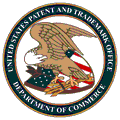

THE problems spawned by software patents affect not only Free software developers. They harm developers as a whole, but Free software is subjected to other (mis)treatment because of the way the software is distributed. Red Hat's legal team has just published a post to explain the severity of this issue. [via Digital Majority]
There are now more than 200,000 software patents, and there is no practical way to be sure that a new program does not infringe one or more of them. A patent lawsuit can cost several million dollars in attorneys’ fees. The risk of patent litigation is one that the FOSS community has learned to live with. But it hardly seems likely that the risk is doing anything other than inhibiting software innovation.
 Is any developer bold enough to internalise all of that reading material and then engage in a task as simple as typing away on a computer keyboard, as opposed to a process more complicated such as designing and manufacturing a machine to perform a particular function? Software is not unsophisticated, but the barriers to entry are very different and the amount of software out there is vast. This imperils studies of prior art and planning of development that's safe from patent violations.
Is any developer bold enough to internalise all of that reading material and then engage in a task as simple as typing away on a computer keyboard, as opposed to a process more complicated such as designing and manufacturing a machine to perform a particular function? Software is not unsophisticated, but the barriers to entry are very different and the amount of software out there is vast. This imperils studies of prior art and planning of development that's safe from patent violations.
“Software is not unsophisticated, but the barriers to entry are very different and the amount of software out there is vast.”The simplest fact is that barriers in the face of trivial tasks and creations only discourage more such creations. This was not the goal of the patent system, was it? This issue must be faced and recognised. Only then can it be properly addressed.
Microsoft is meanwhile obtaining some very trivial patents in order to brag about numbers (quantity over quality). In reality, the poorer the patent, the easier it is to invalidate, but at the same time, the poorer (broader and more trivial) the patent, the more companies and products it jeopardises. It causes unrest and Amazon's one-click shopping is a good example of this.
The 'bleeping patent', which was previously summarised here, is making its appearance in The Times.
Microsoft patents web moderator robots
[...]
There’s a danger, though, that it could go too far. Who’s to say that an overzealous Microsoft employee might not accidentally on purpose blacklist the names of rivals such as Apple and Linux?
Worse, there are governments around the world that would probably go further still, suppressing dissent not with guns and clubs but by preventing people from even discussing concepts such as “protest” or “freedom”. And that, I’m sure you’ll agree, is a freaking scary idea.
theodp writes "Microsoft was just granted U.S. Patent No. 7,392,326 for Text Entry in an Electronic Device. From the patent: 'the invention may automatically add a 'www.' and a '.com' to the text the user is entering and display this combined text'. To get the point across, Microsoft included an illustration showing the 'invention' in action, transforming 'foo' into 'www.foo.com'. Sure it's not sorcery we're dealing with?"

[T]he questions seem like a school book example of avoiding clarifications by asking the wrong questions. Are the EPO just cowards, creating straw men or obstructing the clarity of law?
Then (assuming he is not a patent system economics illiterate) he certainly does not “care about Linux” - and innovation in general - and I assume OIN is some kind of risibly effete poor man’s version of Intellectual Ventures?
Keith says that in OIN’s vision there are “good” patents and “bad” patents, and they won’t take part in the European software patents debate. All in all OIN cares just about Linux, and middleware or application levels are not in OIN’s agenda for the time being. Google is proud to participate in OIN’s mission, as Di Bona made clear through the official google blog, and that is probably good for all (big) Linux end-users.
Will ever OIN go up in the open source software stack?
Right… so it’s just a patent pool with a misleadingly grandiose name (Open Invention Network), set up for the benefit of companies using “the Linux operating system or certain Linux-related applications”.
Some of those companies lobbied for codification of the EPO’s software patent granting practices so it’s not surprising OIN won’t take part in the debate and it is clearly no friend of FOSS and innovation in general, contrary to the impression it sometimes gives.